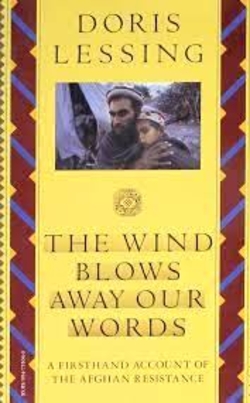 Despite admirable motives — to use a novelist's powers of description to publicize the Afghan plight — Lessing's result is so flawed that it may actually diminish one's understanding of the Afghan war.
Despite admirable motives — to use a novelist's powers of description to publicize the Afghan plight — Lessing's result is so flawed that it may actually diminish one's understanding of the Afghan war.
The book rests on a basic deceit: though the author claims to provide a "firsthand account of the Afghan resistance," she never set foot in Afghanistan, never traveled with the mujahidin, and did not witness a single battle. The whole of her very brief visit was spent in Pakistan. Nor does she achieve what a renowned novelist should - bringing the Afghans to life by describing them in an affecting or memorable way. The Afghans she meets remain pallid figures trapped in their cultural roles, stereotypes rather than individuals. And her facts are a calamity. She has World War II lasting four years, the Prophet Muhammad's grandsons being murdered in the fifth century (Muhammad himself was born in 570), and the Afghans being Jews. Some of her inaccuracies set back the mujahidin's cause, for example her comic portrayal of the very deadly Afghan secret police.
The Wind Blows Away Our Words has all the ingredients of that unfortunate new genre, the "snap" book, in which a famous writer spends a week or two in a political hot spot and writes an impressionistic account to further a cause. The book calls for thick paper, large type, and lots of padding — excursus (Lessing's long and tiresome first chapter retells the myth of Cassandra), "documents," and whatever comes to mind, including odd memories and small incidents.
May 1, 1988 update: For a more detailed review of this book, see "Afghanistan: Respect the Pessimists But Heed the Optimists."